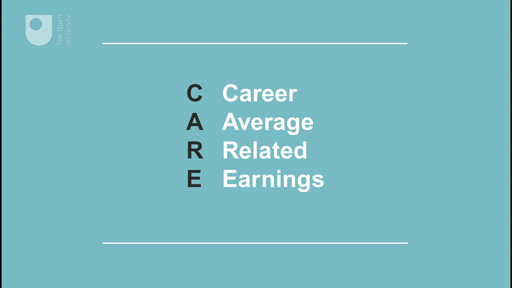5.3.1 Understanding career average pension schemes
In the previous section, you looked at the move by some defined benefit pension schemes to base the pension paid on career average earnings rather than the final annual salary prior to retirement.
The following audio animation shows how these ‘Career Average Revalued Earnings’ or ‘CARE’ schemes work, using the UK’s National Health Service (NHS) CARE scheme as a case study.

